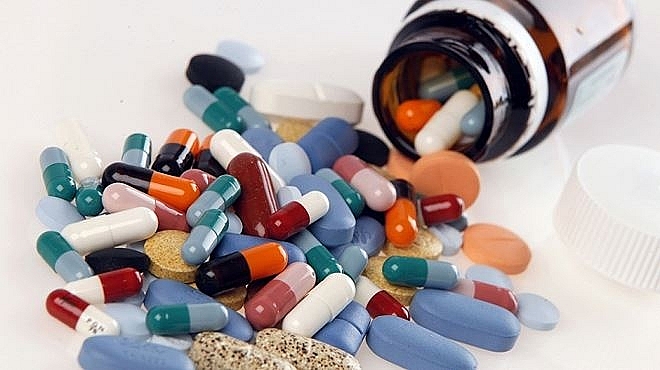Taisho spends $110 million on controlling stake in DHG
 |
| Taisho aims to offset its ailing performance in Japan by increasing its presence in Vietnam |
Through the purchase Taisho increased its ownership in DHG to 66.4 million shares, equalling 50.78 per cent of the stakes. With the offered selling price of VND120,000 apiece, the Japanese pharmaceutical firm spent VND2.47 trillion ($107.4 million) on the deal. The other major shareholder in DHG is State Capital Investment Corporation (SCIC) with 43.3 per cent.
At present, Taisho makes up 13.5 per cent of the over-the-counter (OTC) drugs market in Japan.
The reason behinds the increase of ownership in a local pharmaceutical firm is because Taisho’s market share in the food supplement and hair growth supplement segments is decreasing in Japan, while Vietnam has great potential to develop these products.
| The market’s total revenue is expected to surpass $7 billion by 2020, according to global research firm Business Monitor International. |
In the first quarter of this year, DHG reported a decrease of 15 per cent in revenue to VND908 billion ($39.5 million) and decrease of 10 per cent in pre-tax profit to VND171 billion ($7.43 million). The reason of these decreases is that DHG stopped distributing products of MSD and Eugica since April and June 2018, respectively.
With these bleak results, DHG reached 23 per cent of its expectation (target?) of VND3.94 trillion ($171.3 million) in revenue and VND754 billion ($32.8 million) in pre-tax profit for the whole year.
Taisho Group, headquartered in Tokyo, is a leading Japanese pharmaceutical company specialising in the manufacturing of pharmaceutical products and non-prescription dietary supplements of well-known brands.
In Southeast Asia, Lipovitan D (a vitamin-rich energy drink) is the company’s most famous brand. In 2015, the parent company recorded a revenue of $2.7 billion and after-tax profit of $210 million.
The penetration of foreign pharmaceutical groups such as Sanofi, Taisho, and Abbott into drug production in Vietnam is putting pressure on local peers, and competition is forecast to heat up in the years to come.
To reduce reliance on imported drugs (particularly patented ones) which currently still account for more than 50 per cent of local demand, Vietnam is applying policies to support domestic drug manufacturing.
This is allegedly one of the reasons behind Taisho’s decision to scale up engagement with Vietnamese partner DHG.
With two-digit growth in recent years, Vietnam’s pharmaceutical market is very appealing to foreign investors.
The market’s total revenue is expected to surpass $7 billion by 2020, according to global research firm Business Monitor International.
What the stars mean:
★ Poor ★ ★ Promising ★★★ Good ★★★★ Very good ★★★★★ Exceptional
Related Contents
Latest News
More News
- Masan Consumer names new deputy CEO to drive foods and beverages growth (February 23, 2026 | 20:52)
- Myriad risks ahead, but ones Vietnam can confront (February 20, 2026 | 15:02)
- Vietnam making the leap into AI and semiconductors (February 20, 2026 | 09:37)
- Funding must be activated for semiconductor success (February 20, 2026 | 09:20)
- Resilience as new benchmark for smarter infrastructure (February 19, 2026 | 20:35)
- A golden time to shine within ASEAN (February 19, 2026 | 20:22)
- Vietnam’s pivotal year for advancing sustainability (February 19, 2026 | 08:44)
- Strengthening the core role of industry and trade (February 19, 2026 | 08:35)
- Future orientations for healthcare improvements (February 19, 2026 | 08:29)
- Infrastructure orientations suitable for a new chapter (February 19, 2026 | 08:15)

 Tag:
Tag:

























 Mobile Version
Mobile Version